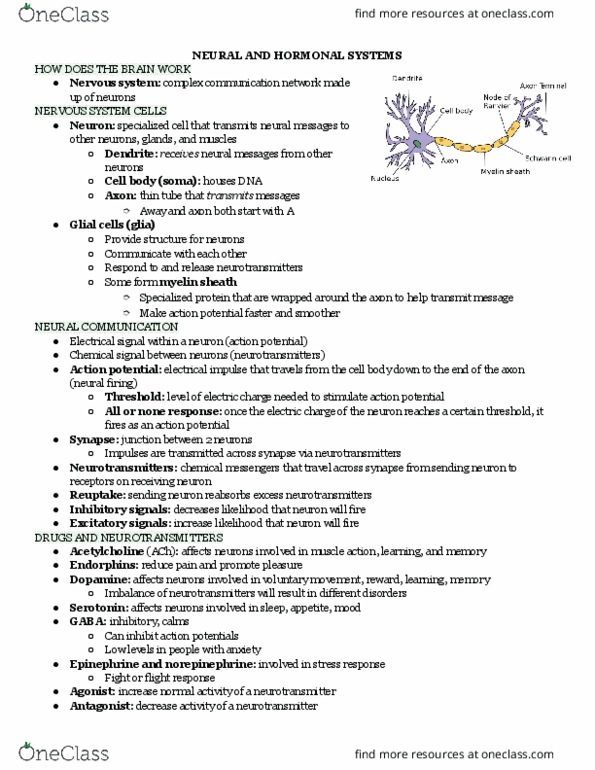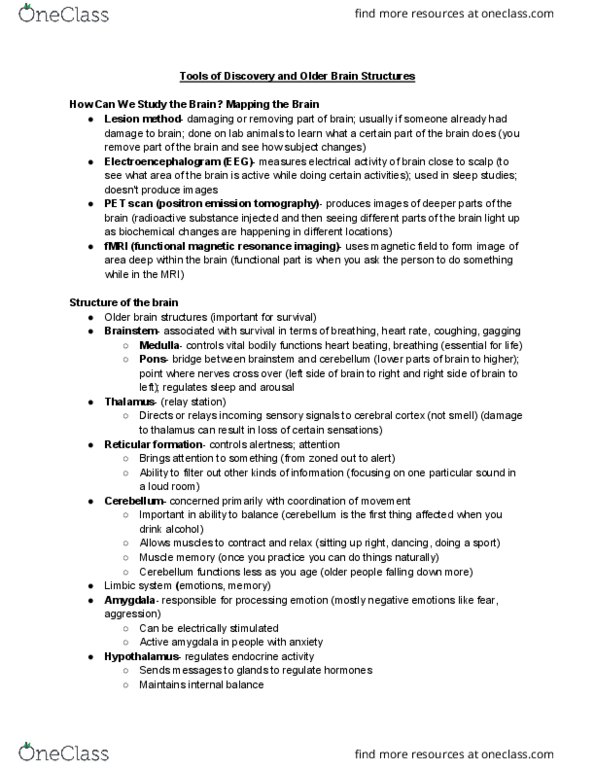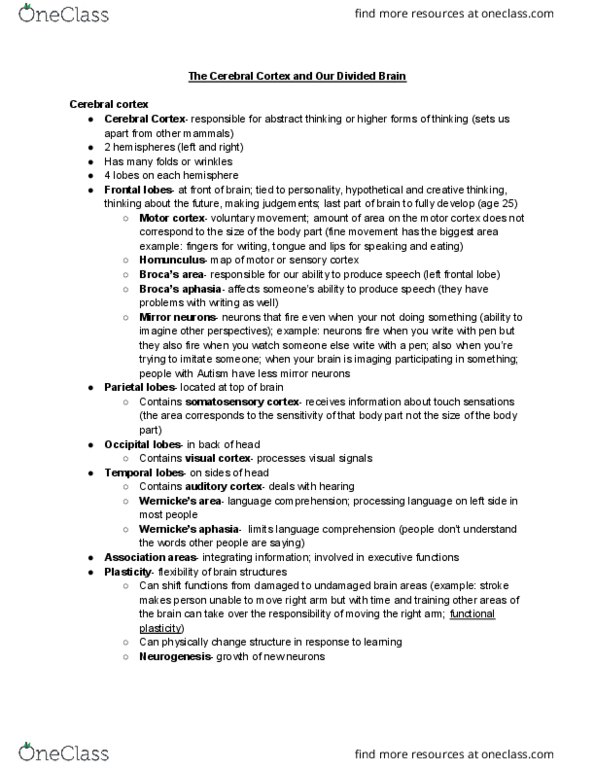01:830:101 Lecture Notes - Lecture 4: Muscle Memory, Reticular Formation, Cerebral Cortex
01:830:101 verified notes
4/17View all
Document Summary
Electroencephalogram (eeg)- measures electrical activity of brain close to scalp (to see what area of the brain is active while doing certain activities); used in sleep studies; doesn"t produce images. Brainstem- associated with survival in terms of breathing, heart rate, coughing, gagging. Medulla- controls vital bodily functions heart beating, breathing (essential for life) Pons- bridge between brainstem and cerebellum (lower parts of brain to higher); point where nerves cross over (left side of brain to right and right side of brain to left); regulates sleep and arousal. Directs or relays incoming sensory signals to cerebral cortex (not smell) (damage to thalamus can result in loss of certain sensations) Brings attention to something (from zoned out to alert) Ability to filter out other kinds of information (focusing on one particular sound in a loud room) Cerebellum- concerned primarily with coordination of movement. Important in ability to balance (cerebellum is the first thing affected when you drink alcohol)




